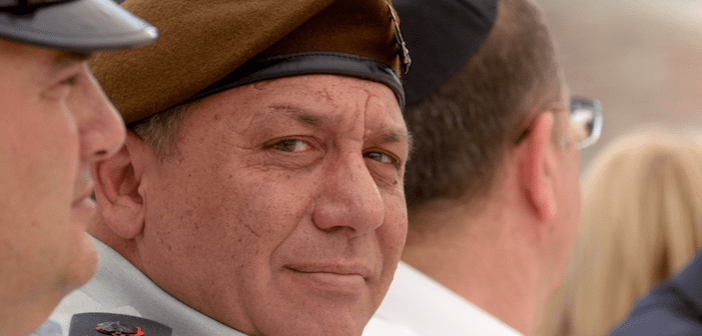In departing interviews, Gadi Eisenkot says IAF struck thousands of targets in Syria, determined to halt Tehran’s plans for regional hegemony following the Islamic State’s loss of power.
But in late 2016, as the US-led international coalition’s war on ISIS was drawing to an end, Iran changed its strategy, planning to use the vacuum created with ISIS’ fall to establish regional hegemony.“They planned by the end of 2018 to have up to 100,000 Shi’ite fighters in Syria. They were bringing them in from Pakistan, Iraq and Afghanistan,” Eisenkot said in an interview with the Sunday Times. “They built intelligence bases on the Golan Heights and simultaneously built wings at all the Syrian air force bases and brought in civilians to begin a process of indoctrination in schools and population centers.”
As a result, in January 2017 Israel started attacking in Syria almost every day, dropping 2,000 bombs in 2018 alone, according to Eisenkot.”We began attacking systematically a number of times each week. Without making any statements. Beneath the radar,” Eisenkot said.
According to the outgoing IDF chief, the decision to directly attack the Iranians was not made lightly. The IDF chief had confidence in the plan, believing the ramifications would not be very grave because “the Iranians chose the wrong playing field” by trying to establish military presence in Syria, close to the Israeli border.“We have intelligence superiority in this area. We enjoy complete aerial superiority, a strong deterrence,” Eisenkot said.
When presenting his plan to Israel’s Security Cabinet, Eisenkot said to the ministers: “We don’t have a choice. If we prefer short-term considerations of keeping the quiet, we will pay a price in the long term.” The Cabinet ended up unanimously approving his plan.
Iran in turn retaliated with dozens of missiles fired at northern Israel. “We identified on May 8 serious preparations for a missile attack, led by the Quds Force (the IRGC’s elite foreign operations unit),” Eisenkot said.
The IDF chief said Israel identified Syria as the weak link in Tehran’s aspirations of creating a “Shi’ite crescent” in the region, stretching from Iran to the Mediterranean.
Syrian President Bashar Assad now shares Israel’s interest to stop the Iranian takeover of southern Syria, Eisenkot said. “Assad needed them when he had his back against the wall and now he doesn’t need them,” he said.
Iran, he said, might turn its attention elsewhere instead. “As we push them in Syria, they transfer their efforts to Iraq,” Eisenkot told The New York Times.
Hezbollah is also less of a threat. “I can say with confidence that as we speak Hezbollah does not possess accurate (missile) capabilities except for small and negligible ones. They were hoping to have hundreds of missiles in the mid- and long-range,” Eisenkot said.
In his interview with the Sunday Times, Eisenkot also admitted for the first time that Israel had supplied rebel groups in the Syria border area with light weapons “for self-defense.”

